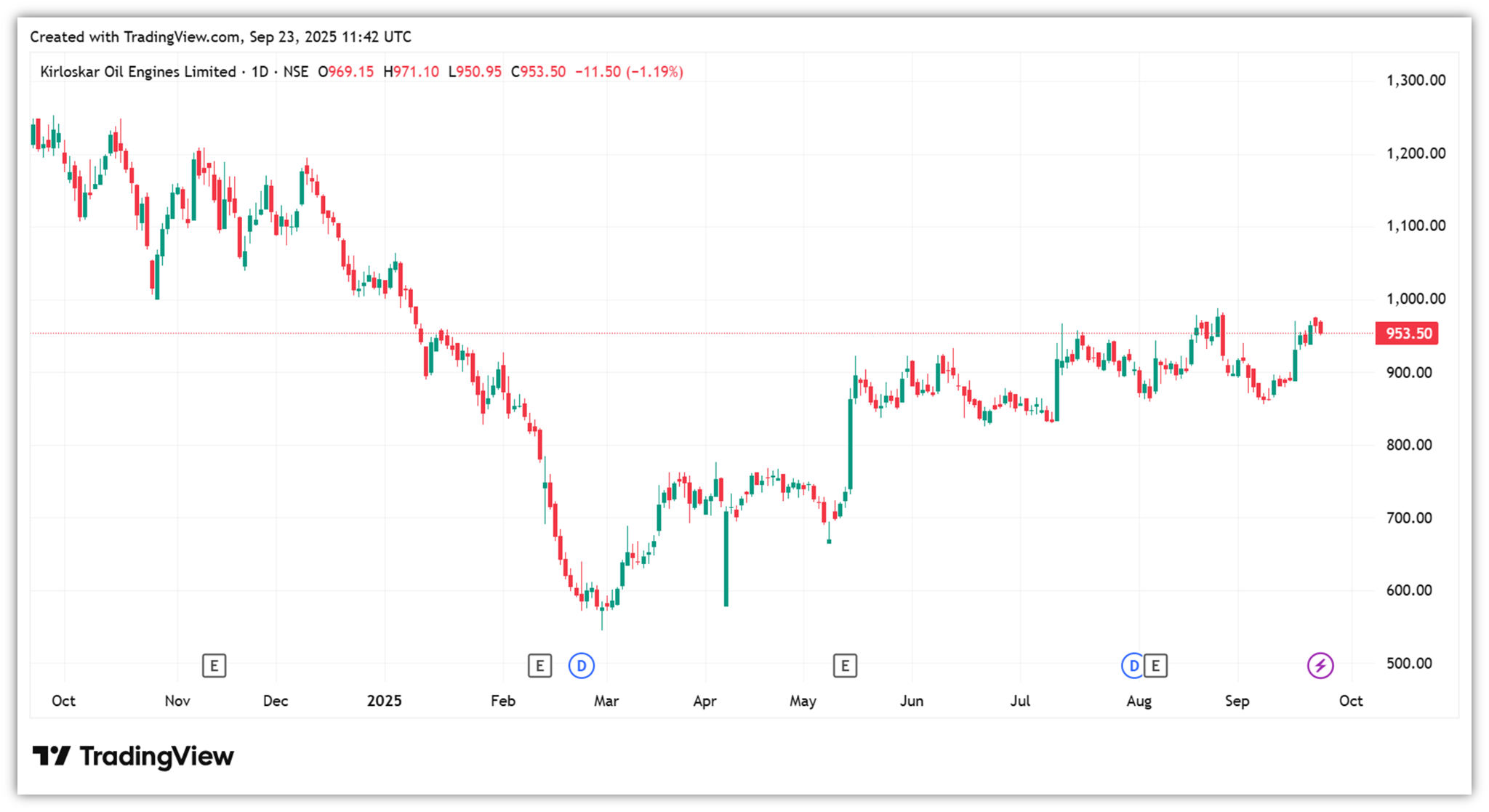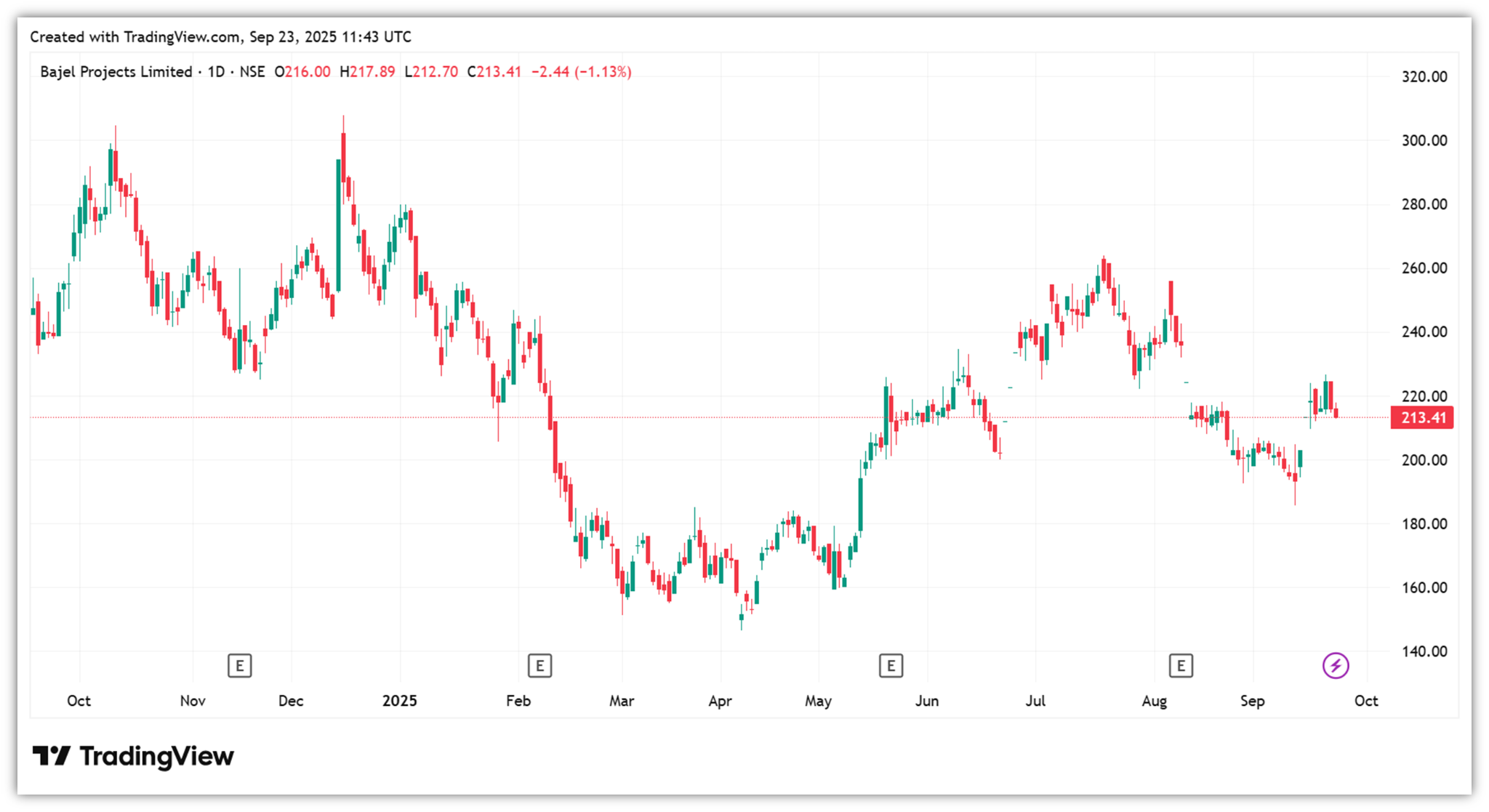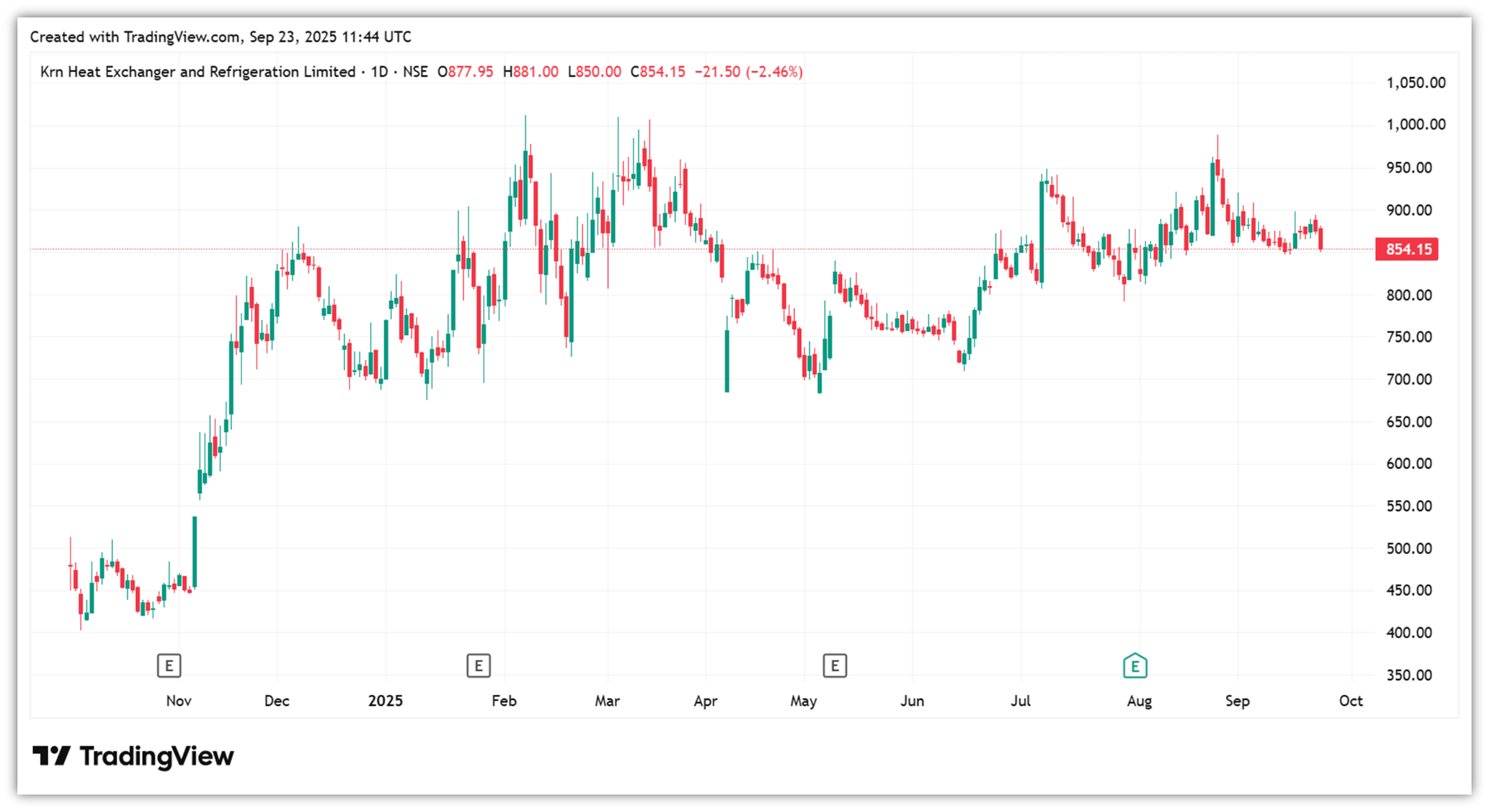Data centers are the hidden factories of the digital age. They are the places where servers store and process the information that keeps our digital lives running. Demand for data centers has been rising sharply in recent years, driven by the growth of cloud computing, the rapid expansion of artificial intelligence, and the vast amount of data generated by businesses and consumers every day.
Colliers India reported that India’s data centre capacity had grown to 1.26 gigawatts (GW) in April 2025, up from 0.3 GW in 2018. A 30-fold increase in data traffic since FY17, combined with rising smartphone penetration, over-the-top (OTT) platforms, digital payments, and e-commerce, has driven growth. But this is just scratching the surface.
Jefferies estimates that the capacity will quintuple to 8 GW over the next five years, driven by rising internet traffic. This expansion is estimated to require an investment of $30 billion (about ₹2.6 trillion). This will open up a range of downstream opportunities for Real estate ($6 billion), Electrical and power systems ($10 billion), Racks ($7 billion), cooling systems ($4 billion), and Network Infrastructure ($1 billion).
Now, when it comes to data centers, the stock that typically draws interest is Anant Raj. Or then one thinks of the giants – Reliance/Jio, Bharti Airtel, or Adani Enterprises. But today we will take a different approach. So, let’s take a look at three ‘hidden’ stocks that also stand to benefit from this boom in data center capacity…
#1 Kirloskar Oil Engines: Powering Uptime for Data Centres
Kirloskar Oil Engines is one of the key companies of the Kirloskar Group. The company manufactures and services diesel engines (ranging from 2.5 horsepower (HP) to 1,650 HP) and diesel generator sets (with power outputs between 3 kVA and 12,000 kVA). It also makes diesel and electric pump sets.
Expanding Role in Critical Infrastructure
The company has a strong presence in various sectors, including power generation, agriculture, and industrial. Apart from this, Kirloskar also supplies generators and firefighting pumps to data centres that require uninterrupted power backup. Management views the data center sector as one of the emerging areas that will contribute to sustained demand in the domestic market.
Its offerings for this sector include Generators, Backup solutions, Generator electrical systems, Retrofit emission control devices, and dual-fuel kits. Its product strategy for this high-demand area consists of the Optiprime series of Gensets.
This series offers a unique and space-efficient design integrating multiple engines under a single canopy. This is ideally suited for sectors such as data centers, where space is limited and uninterrupted performance is crucial.
The company is actively engaged in the sector, stating that it works with numerous data centers. Kirloskar is currently executing several orders related to its data center business and is also expanding more aggressively to capture the demand.
Performance Subdued due to Slowdown in the B2C Segment.
The company operates in the B2B and B2C segments. B2B sales accounted for 72.9% of its revenue of ₹17.5 billion. The balance (16.7%) came from B2C sales, while the rest came from financial services. The company’s revenue in Q1FY26 increased 8% year-over-year to ₹17.6 billion, primarily driven by B2B, whose revenue rose 9% to ₹12.7 billion.
The B2B growth was driven by a revival in demand for the power generation business and the defence segment. The B2C segment revenue declined 1% to ₹2.9 billion. Profit after tax (PAT) from continuing operations fell 14% to ₹1.3 billion, as depreciation and other expenses surged. The company boasts average return ratios, with RoE of 15.4% and RoCE of 13.7%.
Looking ahead, beyond the data center, the management sees sustained demand in the domestic market across key emerging segments, including QSR, retail, and hospitality, noting they are not seeing any cyclicality in these areas. It is also seeing strong demand from the defence indigenization program.
From a valuation perspective, the company is trading at a price-to-earnings multiple of 31.3x, which is significantly higher than the 10-year median of 20.5x. However, its P/E multiple is lower than the current industry median of 44.12x.

#2 Bajel Projects: Plugging Data Centres Into the Grid
Bajel Projects operates within India’s power infrastructure sectors and is a company of the Bajaj Group. It specialises in engineering, procurement, and construction (EPC) services domestically and internationally. The company has over two decades of experience in power infrastructure.
It delivers Extra-High-Voltage (EHV) transmission lines, substations, and underground cabling. It has successfully built over 8,686 circuit kilometers (ckm) of transmission lines and executed over 43 AIS/GIS substation projects across 19+ states.
Within power distribution, it delivers last-mile power infrastructure through EPC solutions for rural electrification, urban grid upgrades, and specialized projects. It has expertise in executing projects under schemes such as Saubhagya across geographies. This includes the states of Uttar Pradesh, Bihar, Odisha, Jammu & Kashmir, and West Bengal.
Key distribution achievements include installing over 26 lakh service connections, completing 1,100+ km of underground cabling, electrifying over 50,000 villages, and installing over 76,000 distribution transformers.
From Power Transmission to Data Centre Electrification
Bajel Projects leverages its core expertise in EPC to offer Total Electrification Solutions for data centers.
- Substations: Providing Gas Insulated Substation (GIS) and Air Insulated Substation (AIS) infrastructure.
- Transmission and Cabling: Supplying transmission lines and Monopoles.
- Electrical Distribution: Handling electrical distribution, cabling, and diesel generator (DG) set supply and installation (S&I).
- Ancillary Systems: Implementing security systems, Data Center Infrastructure Management (DCIM), fire protection, Civil interiors, and Mechanical, Electrical, and Plumbing (MEP) services.
The company entered the data center segment with a landmark GIS substation order in Navi Mumbai. This initial data center order involved the award of a contract for the design and construction of a 220/33 KV GIS Substation and transmission line extension for a colocation data center facility.
Strong Revenue Growth, but Interest Weighed on Profitability
From a financial perspective, revenue from operations in Q1FY26 rose 19% year-on-year to ₹6.1 billion. This growth was driven by strong execution and increased efficiency. EBITDA (earnings before interest, tax, depreciation, and amortization) rose 33% to ₹250 million, while margin expanded by 40 basis points (bps) to 4%.
However, PAT declined 39.8% to ₹33 million, due to a sharp increase in finance costs. As of 30 June 2025, the company’s unexecuted order book stood at ₹36.1 billion. The order book provides revenue visibility of about 1.5 years, based on the FY25 revenue of ₹25.9 billion.
RAASTA 2030: A 6-Year Strategic Roadmap
It has also identified the data center as a key long-term strategy in its “RAASTA 2030,” a 6-year strategic roadmap to FY30. The aim is to position Bajel as a leader in the energy infrastructure sector. The company aims to expand into several high-growth industries in the first 2 years. The latter phase aims to achieve double-digit revenue growth and 15% of RoCE.
From a valuation standpoint, Bajel trades at a P/E of 186x. We have not assessed valuations against historical data due to limited availability. However, its P/E multiple is about 4 times higher than the current industry median of 47.9x.

#3 KRN Heat Exchanger: Cooling the Data Centre Opportunity
KRN Heat Exchanger specializes in the manufacturing of customized heat exchangers and related products for the Heating, Ventilation, Air Conditioning, and Refrigeration (HVAC&R) industry. It operates on a 100% B2B business model, supplying primarily to original equipment manufacturers (OEMs).
A Market Leader in Heat Exchangers
The company’s clientele includes Daikin Air Conditioning, Schneider Electric, Blue Star, and Kirloskar Chillers. KRN’s key products are fin and tube-type heat exchangers, such as condenser coils, evaporator coils, fluid and steam coils, used in various applications, including data center cooling.
KRN also counts the Schneider Electric IT business as a key customer since 2019. Schneider is a well-known provider of solutions for IT and data centers, indicating KRN’s established presence in the relevant supply chain.
Management estimates that Google’s ₹500 bn investment in the data center will create an opportunity of ₹10 bn for the HVAC segment. KRN is well-positioned to tap into this growth due to its expertise in commercial/bigger heat exchangers, where its market share is estimated to be high (60-70%).
Strong Revenue Growth with Healthy Margins
KRN’s revenue in Q1FY26 rose 20.4% year-on-year to ₹1.1 billion. This growth was driven by robust demand across both domestic and international markets. Export revenue surged 39% to ₹188.9 million, while domestic revenue surged 17.3% to ₹963.9 million.
EBITDA increased by 17.3% to ₹197.9 million. PAT increased 13.4% to ₹156.9 million. The company also boasts a strong RoCE and RoE of 20.8% and 16.8%, respectively. Such is the demand for KRN products that its current capacity is running at peak utilisation. To capitalise, it’s expanding its capacity.
Capacity Expansion to Capture Rising Demand
Looking ahead, KRN plans to commission its new manufacturing facility successfully. The company aims to ramp-up production and expects strong numbers from the third quarter of FY26 onwards. This new capacity is expected to reach 20% to 25% utilization in FY26. Utilization is expected to reach about 50% in FY27 and 80% within three years.
Valuation-wise, KRN trades at a P/E of 99.4x. We have not assessed valuations against historical data due to limited availability. However, its P/E multiple is also higher than the current industry median of 32.4x.
KRN Heat Exchanger Share Price

Bottomline
India’s data centre boom is creating a structural opportunity across supporting industries. While Kirloskar Oil Engines, Bajel Projects, and KRN Heat trade at premium valuations, their strategic positioning in power, infrastructure, and cooling is compelling. These are downstream plays to track as capacity and investments accelerate over the next decade.
Disclaimer
Note: Throughout this article, we have relied on data from http://www.Screener.in and the company’s investor presentation. Only in cases where the data was not available have we used an alternate but widely used and accepted source of information.
The purpose of this article is only to share interesting charts, data points, and thought-provoking opinions. It is NOT a recommendation. If you wish to consider an investment, you are strongly advised to consult your advisor. This article is strictly for educational purposes only.
Madhvendra has been deeply immersed in the equity markets for over seven years, combining his passion for investing with his expertise in financial writing. With a knack for simplifying complex concepts, he enjoys sharing his honest perspectives on startups, listed Indian companies, and macroeconomic trends.
A dedicated reader and storyteller, Madhvendra thrives on uncovering insights that inspire his audience to deepen their understanding of the financial world.
Disclosure: The writer and his dependents do not hold the stocks discussed in this article.
The website managers, its employee(s), and contributors/writers/authors of articles have or may have an outstanding buy or sell position or holding in the securities, options on securities or other related investments of issuers and/or companies discussed therein. The articles’ content and data interpretation are solely the personal views of the contributors/ writers/authors. Investors must make their own investment decisions based on their specific objectives, resources, and only after consulting such independent advisors as may be necessary.

